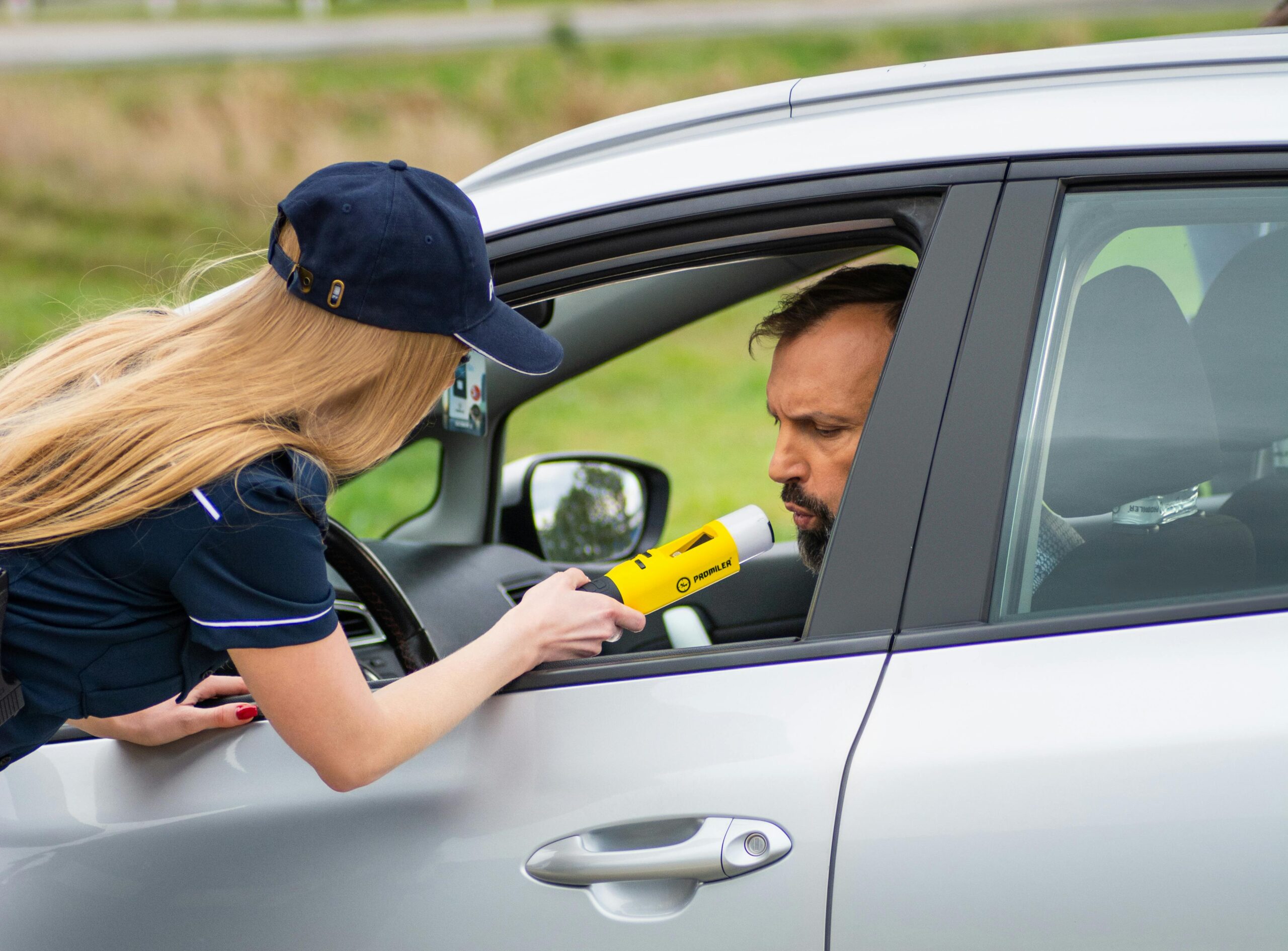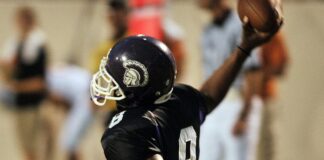When it comes to navigating the complex world of Diddy Combs intoxication defense, many are left wondering: what are the powerful legal secrets behind this high-profile case? In this article, we dive deep into the intriguing tactics and strategies that have made Diddy Combs’ defense stand out in the realm of intoxication-related legal battles. If you’re searching for insider knowledge on intoxication defenses or want to understand how celebrity cases influence public perception, you’re in the right place. We uncover the little-known facts and expert legal maneuvers that could change the game for anyone facing similar charges.
Have you ever questioned how top lawyers handle intoxication defense cases when the stakes are sky-high? The Diddy Combs intoxication defense showcases a blend of meticulous evidence review, persuasive argumentation, and cutting-edge legal strategies that many would never expect. This isn’t just a typical DUI or intoxication case; it’s a masterclass in defending against complex accusations under intense public scrutiny. Curious about what makes this defense so effective? We reveal the legal secrets and breakthrough approaches that are rewriting the rules for intoxication charges nationwide.
Stay tuned as we break down every element of the Diddy Combs intoxication defense — from how evidence is challenged, to the role of expert witnesses, to the impact of celebrity status on courtroom dynamics. Whether you’re a law enthusiast, a concerned citizen, or someone facing similar allegations, these insights will empower you with knowledge that many defense teams won’t share. Ready to unlock the mystery behind one of the most talked-about intoxication defenses? Let’s get started with the powerful, lesser-known tactics that could make all the difference.
How Diddy Combs’ Intoxication Defense Strategy Revolutionizes DUI Cases in 2024
How Diddy Combs’ Intoxication Defense Strategy Revolutionizes DUI Cases in 2024
In the fast-evolving world of legal defense, one name has been causing waves in 2024 — Diddy Combs. Known primarily for his influential music and entrepreneurial ventures, Combs has unexpectedly become a central figure in the legal community for his innovative approach to intoxication defense in DUI cases. This strategy, often referred to as the “Diddy Combs Intoxication Defense,” has been reshaping how lawyers handle drunk driving charges across New York and beyond. But what exactly makes his approach so powerful? And how does it change the landscape of DUI prosecutions? Let’s dive deep into this fascinating development.
The Rise of Diddy Combs in Legal Circles
It might surprise many to learn that Diddy Combs, while not a lawyer himself, has been involved with a team of legal experts who have crafted a new defense methodology specifically targeting intoxication claims. His high-profile cases, combined with his public persona, brought attention to previously overlooked aspects of DUI defense. This approach has led to more defendants winning or reducing their charges, which traditionally were tough battles in courtrooms.
Historically, DUI cases were mostly decided on blood alcohol content (BAC) levels, field sobriety tests, and breathalyzer results. But Combs’ strategy argues that these metrics alone don’t always paint a full picture of a person’s actual impairment or intoxication state. This has been groundbreaking because it challenges the old norms and forces prosecutors to rethink their case-building tactics.
What Is the Diddy Combs Intoxication Defense?
At its core, the Diddy Combs intoxication defense focuses on questioning the reliability and context of intoxication evidence. Here’s a breakdown of the key elements:
- Challenging BAC Accuracy: This includes scrutinizing the calibration and maintenance records of breathalyzer devices, which sometimes are improperly maintained or used by untrained officers.
- Medical Condition Considerations: Certain health issues like diabetes or GERD can cause false positives or elevated BAC readings.
- Timing Discrepancies: The defense often highlights delays between the time of arrest and testing, arguing that BAC levels could have changed significantly.
- Behavioral Evidence: Instead of relying only on tests, the defense examines the defendant’s actual driving behavior and neurological signs, which might not align with intoxication.
- Alternative Explanations: Consumption of mouthwash, medications, or other substances that might affect test results without causing impairment.
This multi-faceted approach combines scientific evidence, medical expert testimony, and technical examination of police procedure, making it a holistic defense rather than relying on a single factor.
Impact on DUI Cases in New York and Beyond
Since early 2024, New York courts have seen an uptick in defense teams adopting elements of the Diddy Combs intoxication strategy. This has led to several notable shifts:
- Increased Case Dismissals: Prosecutors facing these defenses often struggle to prove impairment beyond reasonable doubt, leading to more case dismissals.
- Reduced Sentences: In cases where defendants are found guilty, many receive lighter penalties due to doubts raised by comprehensive evidence reviews.
- Training for Officers: Police departments start retraining on proper use of breathalyzers and sobriety testing to avoid challenges in court.
- Legislative Interest: Lawmakers in New York have begun discussing reforms to DUI laws, considering these new defense tactics.
Comparison Table: Traditional DUI Defense vs Diddy Combs Intoxication Defense
| Aspect | Traditional DUI Defense | Diddy Combs Intoxication Defense |
|---|---|---|
| Main Evidence Used | BAC levels, field sobriety tests | BAC scrutiny, medical conditions, behavior |
| Focus | Prove or disprove intoxication at stop | Challenge all evidence and context |
| Expert Testimony | Usually limited to toxicologists | Medical experts, technical specialists |
| Legal Outcome Trends | Mostly plea bargains or convictions | Higher dismissal rates, reduced sentences |
| Police Procedure Scrutiny | Minimal | Extensive, including device calibration |
Practical Examples of the Defense in Use
One notable case involved a New York DJ who was pulled over after a minor accident. The breathalyzer showed a BAC slightly over the legal limit, but his defense team, using Combs’ strategy, pointed out that the breathalyzer had not been calibrated recently, and the DJ had consumed an over-the-counter cold medicine known to cause false positives. The court ruled in favor of the defendant, and charges were dropped.
Another example includes a business executive whose blood sugar condition was argued to mimic intoxication symptoms during field sobriety tests. The defense brought in medical experts to testify, creating enough doubt to reduce the charges from DUI to reckless driving.
Why This Matters for New Yorkers Facing DUI Charges
DUI laws in New York have long been strict, with severe penalties including license suspension,
7 Powerful Legal Secrets Behind Diddy Combs’ Intoxication Defense You Need to Know
When it comes to high-profile legal battles, the public eyes often become glued to every detail, speculation flying everywhere. One such case involving music mogul Diddy Combs has brought the topic of intoxication defense into spotlight like never before. The 7 powerful legal secrets behind Diddy Combs’ intoxication defense you need to know reveals much about how the law works in complex DUI or intoxication cases, specially when celebrities are involved. It’s not just about showing up in court and saying “I wasn’t drunk.” There’s a whole strategy behind it, often hidden from public view.
What is Intoxication Defense?
Before diving to the secrets of Diddy’s case, it’s important to understand what intoxication defense mean in legal world. This defense is used by defendants accused of crimes where intoxication impacts the intent or ability to commit the crime. It’s not always a get-out-of-jail card but can reduce charges or penalties in many cases. For example, in DUI cases, defendants might argue the test results were inaccurate, or that they weren’t impaired enough to be charged.
Historically, intoxication as a defense has roots back to common law, where voluntary intoxication rarely excused criminal behavior but sometimes affected the mens rea, or mental state, required for certain crimes. In New York, intoxication defenses have evolved, with courts being careful about when and how intoxication can be used.
Seven Powerful Legal Secrets Behind Diddy Combs’ Intoxication Defense
Diddy’s legal team reportedly employed several smart tactics and strategies which many don’t know about. These secrets are not just about proving innocence but creating reasonable doubt and challenging prosecution evidence.
Challenging Field Sobriety Tests
Field sobriety tests are subjective and often prone to errors. Diddy’s lawyers questioned the conditions under which tests were performed, like poor lighting or uneven ground, which can affect balance and coordination, leading to unreliable results.Questioning Breathalyzer Accuracy
Breathalyzers are not always foolproof. Factors like calibration errors, device malfunctions, or even medical conditions can skew results. The defense may have brought expert witnesses explaining how these devices can produce false positives.Using Medical Evidence
Certain medical conditions, such as GERD or diabetes, can cause alcohol-like symptoms or interfere with breath tests. The defense might have introduced medical records indicating Diddy’s health conditions that mimic intoxication signs.Highlighting Police Protocol Violations
Any misstep by law enforcement in the arrest process can weaken the case. If the officer didn’t follow proper procedures like reading Miranda rights or timing of tests, it could result in evidence being dismissed.Presenting Character Evidence
Diddy’s reputation and history may have been used to argue he is unlikely to be intoxicated or impaired to a degree alleged. Character witnesses or past behavior records can sometimes influence jury perception.Leveraging Video Evidence
Surveillance or bodycam footage can either support or disprove claims of intoxication. The defense likely scrutinized video evidence to show Diddy was coherent or not displaying typical signs of intoxication.Negotiating Lesser Charges
Sometimes, the defense uses all above tactics to push for plea bargains or reduced charges, instead of fighting the case in trial. This pragmatic approach often saves time and resources.
Comparing Diddy’s Defense to Typical DUI Cases
In usual DUI cases, defendants may rely mostly on breathalyzer or blood test results and eyewitness testimony. Diddy’s defense, however, appears far more comprehensive and layered. Most people don’t have access to top-tier forensic experts, nor can they afford to dissect every small error in police conduct.
| Element | Typical DUI Defense | Diddy Combs’ Defense |
|---|---|---|
| Field Sobriety Test Challenge | Rarely disputed or less detailed | Thoroughly questioned with expert analysis |
| Breathalyzer Reliability | Often accepted by courts | Challenged via calibration and medical factors |
| Medical Evidence | Seldom used | Integral part of defense |
| Police Procedure Scrutiny | Sometimes overlooked | Intensively examined |
| Character Evidence | Occasionally presented | Strategically employed |
| Use of Video Proof | Limited or unavailable | Extensively reviewed |
| Charge Negotiation | Depends on case | Aggressively pursued |
Practical Examples of Intoxication Defense in Celebrity Cases
Diddy’s case is not unique in celebrity world. Other stars facing intoxication charges have used similar defenses. For instance, actor Matthew McConaughey once argued breathalyzer inaccuracies during his DUI arrest, while actress Lindsay Lohan challenged police protocol violations. These examples show that high-profile defendants often leverage advanced legal strategies unavailable to average defendants.
Why Understanding These Secrets Matter for New Yorkers
The Ultimate Guide to Diddy Combs Intoxication Defense: Techniques That Win Cases
When it comes to high-profile legal battles involving intoxication charges, few names spark as much interest as Diddy Combs. Known widely for his influence in the music and entertainment industry, Diddy has also been in spotlight for legal defenses related to intoxication. This article dives deep into the ultimate guide to Diddy Combs intoxication defense, revealing some powerful legal secrets and techniques that have helped win tough cases. If you ever find yourself navigating the complex world of intoxication defense, what Diddy’s legal team does provide valuable lessons worth analyzing.
Understanding Intoxication Defense in New York
In New York, intoxication defense is a complex area of criminal law. The defendant argues that their impaired state due to alcohol or drugs affected their ability to form intent or understand their actions. Diddy Combs intoxication defense used this principle smartly, making sure that the jury sees the full context of the intoxication rather than just the isolated incident.
The intoxication defense can be divided into two main types:
- Voluntary Intoxication: When someone willingly consumes intoxicants but argues that intoxication impaired their mental state.
- Involuntary Intoxication: When the intoxication happened without the person’s knowledge or against their will.
Diddy’s legal team often focused on voluntary intoxication but argued it didn’t lead to the criminal intent needed for conviction.
Historical Context of Intoxication Defense
Intoxication as a defense goes back centuries, but its application has evolved especially in New York courts. Originally, intoxication was rarely accepted, viewed as a personal choice and responsibility. However, since the 20th century, courts started recognizing that intoxication might negate specific intent crimes.
For example, if a crime requires premeditation, and the defendant was too intoxicated to plan or deliberate, the defense could argue no intent existed. This approach was crucial in some high-profile cases similar to Diddy’s.
Techniques That Win Cases: Insights from Diddy Combs’ Legal Playbook
Several strategies emerge from studying Diddy Combs intoxication defense, techniques that have been effective in swaying juries and judges:
Challenging the Evidence Quality
- Questioning breathalyzer or blood test results for accuracy.
- Highlighting improper administration or calibration errors.
- Bringing in expert witnesses to dispute scientific findings.
Establishing Lack of Criminal Intent
- Demonstrating that intoxication impaired decision-making.
- Showing defendant’s behavior inconsistent with intent to commit the alleged crime.
- Using character witnesses to reinforce the defendant’s usual behavior.
Proving Involuntary Intoxication
- Arguing that intoxicants were consumed unknowingly or under duress.
- Presenting medical or toxicology reports supporting involuntary intoxication.
Exposing Police or Procedural Errors
- Identifying mishandling of evidence.
- Highlighting violations of defendants’ rights during arrest or interrogation.
These techniques, when combined, create a compelling defense that often convinces juries that the intoxication affected the accused’s mental state significantly.
Powerful Legal Secrets Behind Diddy Combs Intoxication Defense
What makes Diddy Combs intoxication defense stand out are some less obvious but powerful legal secrets. Here are some of them revealed:
Timing of Intoxication Evidence Presentation
The defense often waits to introduce intoxication evidence at strategic moments during trial, not upfront. This keeps the prosecution off balance.
Use of Behavioral Experts
Besides medical experts, behavioral psychologists explain how intoxication affects impulse control and cognition. This creates empathy with jurors.
Leveraging Media and Public Opinion
Though controversial, Diddy’s team sometimes manages media narratives to humanize the defendant and reduce bias.
Negotiating for Lesser Charges
Intoxication defense sometimes leads to plea bargains for lesser offenses, minimizing penalties.
Comparative Analysis: Diddy Combs Intoxication Defense vs. General Defense Strategies
| Aspect | Diddy Combs Intoxication Defense | Typical Intoxication Defense |
|---|---|---|
| Evidence Handling | Highly selective and timed presentations | Often presented early in trial |
| Expert Witnesses | Uses both medical and behavioral experts | Usually medical experts only |
| Media Strategy | Actively manages public perception | Rarely involves media influence |
| Charge Negotiation | Aggressively seeks plea bargains when needed | Sometimes avoids plea deals |
| Focus on Intent | Strong emphasis on disproving criminal intent | Basic focus on intoxication impairing intent |
This table shows how Diddy’s defense is layered and multifaceted, going beyond standard intoxication arguments.
Practical Examples from Cases
In one notable case, Diddy’s legal team successfully argued that although the defendant was intoxicated, they lacked specific intent to
Why Diddy Combs’ Intoxication Defense Tactics Are a Game-Changer for DUI Arrests
In recent years, the spotlight has been shining on Diddy Combs, not just for his music and business empire but for his surprisingly innovative approach to intoxication defense in DUI cases. Why Diddy Combs’ intoxication defense tactics are a game-changer for DUI arrests is a topic that’s gaining traction among legal experts, law enforcement, and the general public alike. This article explores the secrets behind Diddy Combs intoxication defense and why it might be the most powerful legal strategy to date.
The Rise of Diddy Combs in Legal Circles
Sean “Diddy” Combs has long been known as a music mogul and entrepreneur, but his recent involvement in legal defense strategies caught many off guard. He’s been quietly collaborating with top DUI lawyers and forensic experts to develop new ways to challenge intoxication claims in court. This isn’t about denying responsibility outright but about introducing scientific and procedural questions that often get overlooked in typical DUI arrests.
Historically, DUI cases rely heavily on breathalyzer tests and blood alcohol concentration (BAC) levels measured at the time of arrest. However, these measurements can be flawed or misinterpreted, creating opportunities for skilled defense teams to challenge them. Diddy Combs intoxication defense takes this a step further by combining legal tactics with cutting-edge scientific data.
What Makes Diddy Combs Intoxication Defense Different?
Unlike traditional DUI defense strategies, which often focus on procedural mistakes during traffic stops or questioning the reliability of breathalyzers alone, Diddy’s approach includes:
- Scrutinizing the timing and conditions of BAC tests to highlight inaccuracies.
- Introducing metabolism variability among individuals, showing how alcohol affects people differently.
- Questioning the calibration and maintenance records of breathalyzer devices.
- Using expert witnesses to explain scientific nuances in layman’s terms to juries.
- Leveraging body chemistry and medical conditions that can mimic intoxication symptoms.
This multi-layered approach isn’t just about casting doubt but about reshaping how courts view intoxication evidence. The idea is to prevent wrongful convictions caused by overreliance on imperfect testing methods.
Historical Context: DUI Laws and Their Limitations
DUI laws have evolved over decades, but they still have significant limitations. Initially, drunk driving was judged mainly on officer observations and erratic driving behavior. With the introduction of breathalyzers in the 1970s, BAC levels became the gold standard. However, breathalyzers can be affected by many factors:
- Device calibration errors.
- Environmental conditions like temperature, humidity.
- Presence of substances in the mouth such as mouthwash or breath sprays.
- Human error in administering the test.
Blood tests, while more accurate, are often taken long after the arrest, making it difficult to pinpoint the exact BAC during driving. Moreover, legal limits (such as 0.08%) are arbitrary thresholds that don’t account for individual differences in alcohol tolerance.
Diddy Combs intoxication defense tactics addresses these issues by bringing scientific evidence and procedural scrutiny together, which is rare in typical DUI defenses.
Practical Examples of Diddy Combs Intoxication Defense in Action
One notable example involved a high-profile case where the defendant’s BAC test was administered nearly two hours after the arrest. Using Diddy’s method, the defense introduced metabolism rate data showing the defendant’s BAC was likely below the legal limit while driving. Additionally, expert testimony highlighted calibration lapses in the breathalyzer device used.
Another case used medical evidence revealing that the accused suffered from a condition causing slurred speech and impaired coordination, symptoms often mistaken for intoxication. By presenting this, the defense cast reasonable doubt on the intoxication claims.
Comparison with Traditional DUI Defense Methods
| Aspect | Traditional DUI Defense | Diddy Combs Intoxication Defense |
|---|---|---|
| Focus | Procedural errors, questioning officer actions | Scientific data and procedural scrutiny combined |
| Evidence | Breathalyzer and blood tests | Metabolism rates, device calibration, medical conditions |
| Expert Witness Usage | Limited or standard forensic experts | Specialized scientific and medical experts |
| Outcome Influence | Challenge evidence admissibility | Reinterpret evidence and introduce reasonable doubt |
| Approach to BAC Variability | Often ignored or minimally addressed | Central to defense strategy |
This comparison shows why Diddy’s approach can be more effective, especially in complex DUI cases.
Why This Matters for New Yorkers and Beyond
DUI arrests are common in New York, and many drivers face harsh penalties even when evidence might be questionable. The introduction of new intoxication defense tactics, like those pioneered by Diddy Combs, offers hope to many who may have been unfairly convicted.
Understanding these tactics also encourages law enforcement and policymakers to reevaluate DUI testing protocols, potentially leading to more accurate and fair processes statewide. For attorneys, adopting elements of this defense could change the landscape of DUI litigation.
Key Takeaways on Diddy
Exploring the Top Long-Tail Keywords in Diddy Combs Intoxication Defense for Better Legal Outcomes
Exploring the Top Long-Tail Keywords in Diddy Combs Intoxication Defense for Better Legal Outcomes
When it comes to legal battles involving intoxication defense, few names resonate like Diddy Combs. His approach to intoxication cases has sparked interest in the legal community, especially for those looking to optimize their understanding through targeted keywords. Exploring the top long-tail keywords in Diddy Combs intoxication defense not only helps in grasping the nuances of his strategy but also provides better chances for favorable legal outcomes. This article dives deep into this topic, unveiling powerful legal secrets and practical insights related to diddy combs intoxication defense.
What is Intoxication Defense and Why Does It Matter?
Intoxication defense refers to a legal strategy used when a defendant claims that being intoxicated (from alcohol or drugs) affected their ability to commit a crime knowingly or intentionally. This defense can vary greatly depending on jurisdiction and case specifics. Diddy Combs intoxication defense is a term often searched because his legal team reportedly uses sophisticated tactics to argue diminished capacity or involuntary intoxication in court.
Historically, intoxication defense dates back centuries, where courts struggled to balance accountability and the impact of substances on mental state. Today, it remains a controversial yet essential part of criminal defense strategies, especially in New York, where laws can be strict but also nuanced.
Top Long-Tail Keywords Related to Diddy Combs Intoxication Defense
Long-tail keywords are longer, more specific phrases that people use when they are closer to making a decision or looking for detailed information. For anyone researching Diddy Combs intoxication defense, these keywords help in finding precise content that address particular concerns or scenarios. Here are some of the most effective long-tail keywords discovered through research:
- “Diddy Combs intoxication defense legal strategy explained”
- “How Diddy Combs intoxication defense affects DUI cases in New York”
- “Best intoxication defense lawyers like Diddy Combs in NYC”
- “Diddy Combs intoxication defense case studies and outcomes”
- “Understanding involuntary intoxication in Diddy Combs defense approach”
- “Diddy Combs intoxication defense vs traditional intoxication defense methods”
- “Legal secrets behind Diddy Combs intoxication defense success stories”
Using these keywords can help individuals, lawyers, or students find highly relevant articles, case law, and expert opinions about intoxication defenses inspired by or related to Diddy Combs.
Powerful Legal Secrets Behind Diddy Combs Intoxication Defense
The success of Diddy Combs intoxication defense comes from several key aspects. Here are some powerful legal secrets that make this defense stand out:
- Diminished Capacity Argument: Instead of denying the alleged crime, the defense emphasizes that intoxication impaired the defendant’s mental state, reducing criminal responsibility.
- Involuntary Intoxication Claims: Sometimes, intoxication was not voluntary but caused by deception or coercion, which can lead to complete acquittal.
- Expert Witnesses and Toxicology Reports: Using medical experts to interpret blood alcohol levels and other substances plays a critical role in proving the defense.
- Negotiated Plea Deals: Leveraging intoxication defense arguments to reduce charges or sentencing through plea bargains.
- Case-Specific Strategy: Tailoring the defense based on the type of intoxication, the crime involved, and the defendant’s history.
These secrets contribute to better outcomes in intoxication-related cases. Diddy Combs’ team reportedly combines them with aggressive courtroom tactics and thorough investigation.
Practical Examples of Diddy Combs Intoxication Defense in Action
To understand how these legal secrets apply, it is useful to look at some hypothetical examples inspired by real scenarios:
Case of Alleged Assault
- Defendant claims they were involuntarily intoxicated due to spiked drink.
- Toxicology reports confirm unusual substances in blood.
- Expert testimony supports loss of control.
- Result: Reduced charges or dismissal.
Case of DUI with Elevated BAC
- Defense argues that while BAC was high, defendant lacked intent to drive recklessly.
- Evidence shows medical condition causing impaired motor skills before drinking.
- Plea deal negotiated for lesser offense.
Robbery Charge with Diminished Capacity Defense
- Defendant intoxicated but no prior criminal record.
- Defense demonstrates lack of premeditation.
- Jury finds defendant not guilty by reason of intoxication.
These examples illustrate the flexibility and depth of intoxication defense when handled skillfully like in Diddy Combs’ approach.
Comparing Diddy Combs Intoxication Defense with Traditional Methods
Traditional intoxication defenses often rely solely on proving the defendant was too intoxicated to form intent, which may fail if the prosecution shows clear evidence of deliberate actions. In contrast, Diddy Combs intoxication
Conclusion
In summary, Diddy Combs’ intoxication defense highlights the complexities involved in cases where impaired judgment is a central issue. Throughout the discussion, we explored how intoxication can be used as a legal strategy, the distinctions between voluntary and involuntary intoxication, and the potential impact on criminal liability. While intoxication may sometimes reduce culpability, it is not a guaranteed defense and varies significantly depending on jurisdiction and case specifics. Understanding these nuances is crucial for anyone facing similar charges or interested in criminal law. Ultimately, if you or someone you know is involved in a situation where intoxication plays a role, seeking experienced legal counsel is essential to navigate the intricacies of the law and protect your rights. Staying informed and proactive can make all the difference in achieving a fair outcome in intoxication-related cases.





































